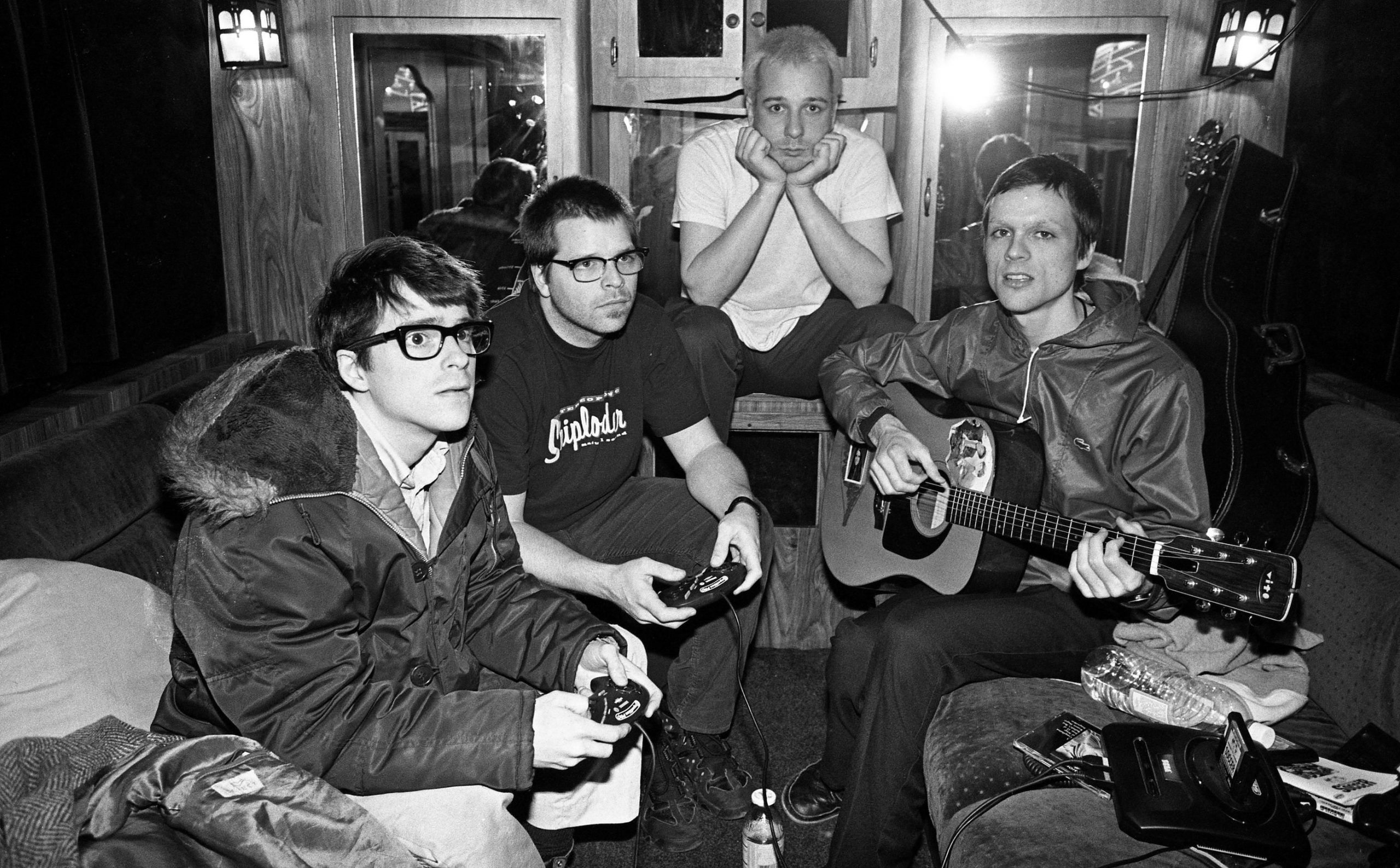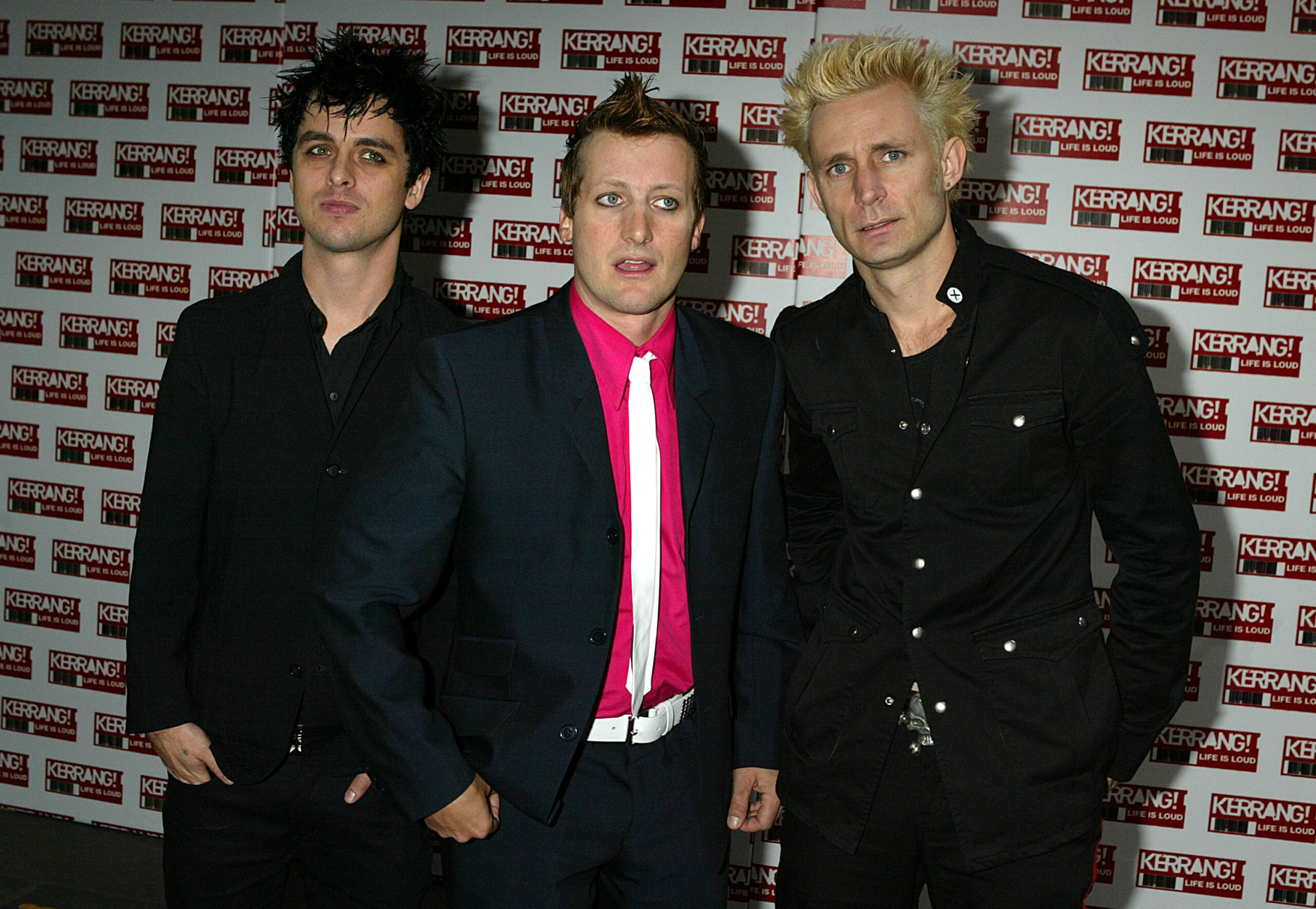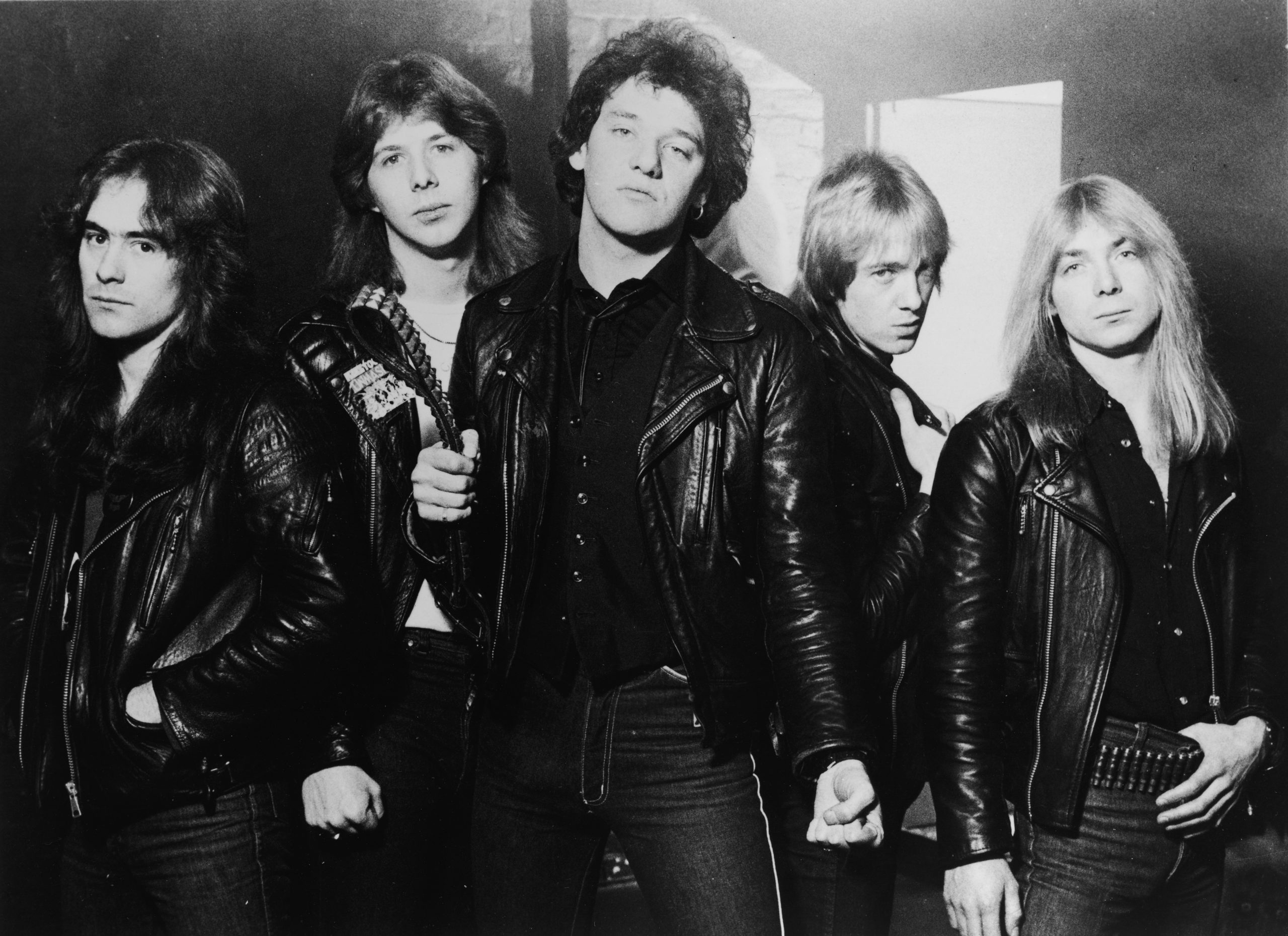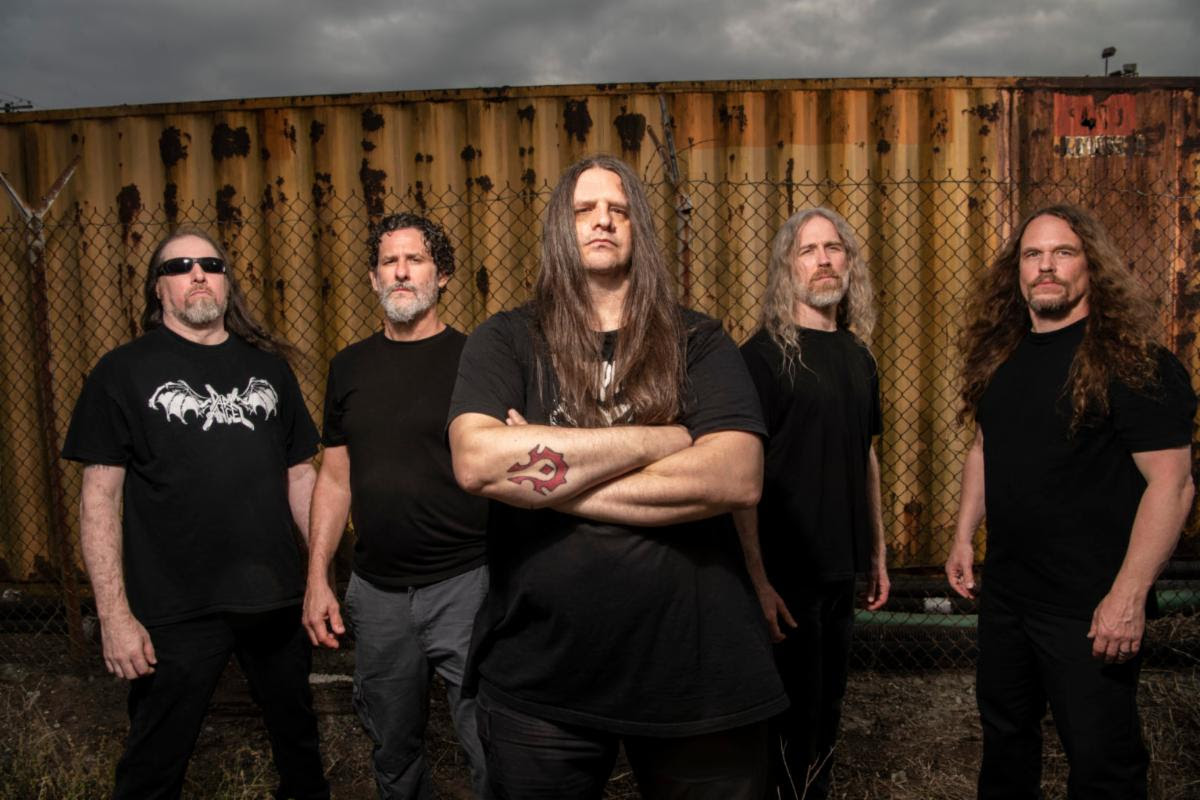Weezer had been collecting ill-will for years by 2010. Where most bands beloved for their first few albums typically fade into passive disinterest when their music starts to yield diminishing marginal returns, Weezer somehow courted active malice. This wasn't just a band failing to reach previous heights; they became one seemingly motivated to see how low they could go, to the extent that it became increasingly difficult to simply toss them into the legacy bin and enjoy greatest hits sets every other time they came to your town. If Rivers Cuomo's behavior in the '90s suggests anything, it's that he sincerely cares how his band is received, although for years he went on making decisions counterintuitive to every notion of feedback he must have heard.
Even if Cuomo wound up numb to the constant criticism, the petition still must have been a guttural blow. That moment -- when someone publicly offered the band $10 million to break-up -- wasn't just another dissatisfied listener let down once again; it was one saying you provide the world more pain than pleasure, that you cause hurt to "our brothers and sisters, our friends, our lovers." Weezer responded tactfully to the blatant troll, with Patrick Wilson quipping on Twitter, "If they can make it 20 [million dollars] we'll do the 'deluxe breakup,'" but even still the incident and the subsequent press attention it received must've cut deep. That was the Weezer brand sinking to Nickelback levels, but worse because the hate was coming from their own fans. Far less has brought Cuomo far lower.
Yet Cuomo deserves considerable credit for nevertheless persisting in his journey to discern musical right from wrong. Where other rockers would have ignored or bitterly dismissed fans endlessly asking for remakes of their first two albums as "entitled" and "just not getting it," Cuomo took ownership over the falling out between his band and their audience by making promises to both them and himself to do better. For many, that year's Hurley was a momentary respite in the decade-long cycle of mediocrity. It was perhaps by most metrics still fairly mediocre, but it was far better than any of their previous three albums, and it showed Cuomo acknowledging his past in the most direct, healthy way he had ever since distancing himself so vehemently from the initially lambasted, then cult-classic, now mainstream classic Pinkerton. Hurley's boldest moment comes when Cuomo affirms that he's far from finished despite all the lost faith, painfully knowing that those critics he's addressing are the one's buying the CDs.
He didn't accomplish that on Hurley, but it only took him one additional album to cement the present-day Weezer's legitimacy as something more than a nostalgia act trying and failing to create anything new that's worth reminiscing over. Everything Will Be Alright In The End, the White Album, and now (to some extent) Pacific Daydream all exist as crucial pegs in what's become one of the most-necessary comeback stories in contemporary alt-rock. Cuomo has always rooted for the little guy in his songs, writing anthems either sympathizing with, consoling, or revering the ones least celebrated by the masses. So it was only right those subjects afford Weezer their own opportunity to rise against expectations and complete their hero's journey. Cuomo, popular rock's mascot underdog, had to sink to new lows to make it out on top, or as he put it on the lead single for the band's best album of this century: "I had to go and make a few mistakes so I could find out who I am."
You have to wonder what would have happened to Weezer, and if they'd have made those same mistakes, had they finished and released their planned, now semi-mythical Songs From The Black Hole as opposed to Cuomo sharing and then subsequently retreating from the vulnerabilities he exposed on Pinkerton back in 1996. Their sophomore album is the key leverage point in the band's timeline, the one with the greatest potential to have changed everything about the Weezer narrative, both in what came next and how we would have looked back. It's perhaps the greatest "what if?" in modern music, to the extent that a band now more than two decades into their career and having influenced an entire new generation of artists can be considered "modern." Weezer, for better or worse, are one of the most important bands of the new millennium -- as much for the early highs that begat their esteemed place in emo and alternative history as for the lows that constantly place it into question. What rock looks like both on the radio and in the underground would be enormously different if not for the varying shades the band popularized.
Without Pinkerton's crucial kink in the story of Weezer, we undoubtedly wouldn't have the same following discography to parse through, one with highlights greater than we often give the band credit for. Even a good deal of the duds -- which, to be sure, are both many and considerable -- have aged better than their initial reception would have predicted. Outside of the tunnel of disrespect Weezer were roaring down during the century's first decade, many of those previous lows can be seen in a more positive light, as the harmlessly well-constructed pop-rock nuggets this band never failed at churning out in a consistently prolific fashion. Yet ultimately Weezer's legacy will be built on the songs outside of that mid-period hook-heavy canon, resting instead on their barbershop-garage rock early days and their jubilant Beach-Boys-do-hair-metal present.
Cuomo, as the recipient of the most damning criticism for an album that was ultimately wholeheartedly embraced, may as well have dismissed all our fickle reactions to his music and continued on whatever path he damn well pleased. But he cares too much about us caring -- it's always been both his fatal flaw and his greatest strength. So he never gave up on trying to course correct, which is why more than those of any other band, Weezer fans are so invested in their music being good; in still encompassing that heart-booming, fist-pumping, soul-rearing rush they incited when you first heard them. With their latest string of releases, Cuomo has turned the tide and defeated the most obstinate enemy we universally face: ourselves.
It's a narrative we all hope to believe in, need to believe in. This catalogue is one you can't help but root for -- which is why that petition in 2010 was more than simply a mean-spirited gesture, it was an ignorant one. At their best, Weezer have never been about easy, expected successes (their debut album ends with an eight-minute epic on not getting the girl); they're about learning lessons from lost battles and patient, hard-earned redemption. A win from Weezer is worth the wait, because it feels like when Weezer's winning, we're all winning.
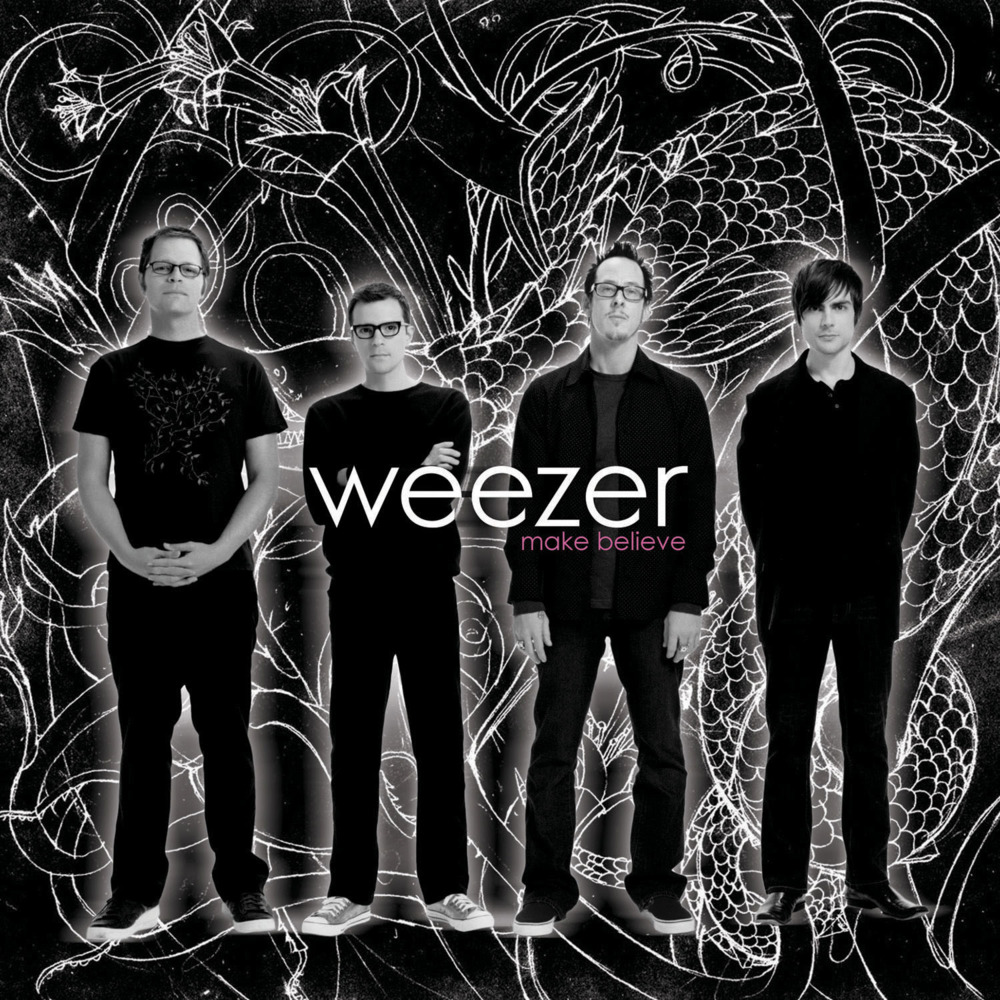
11. Make Believe (2005)
For most, Make Believe can be effectively boiled down to "the one with 'Beverly Hills,'" or to more discerning Weezer fans, "the one with 'Perfect Situation.'" But neither description does justice in emphasizing just how miserable -- not simply dismissable -- the rest of this material is. Songs like "We Are All On Drugs" and "Best Friend" are unfortunately far from forgettable; they're uninspired sing-song monstrosities that elicit strong second-hand embarrassment, and became the blueprint for the most unforgivable songs on the band's next few albums. While touted by some as a return to the openly emotional songwriting of Pinkerton, Make Believe's claustrophobic, stunted perceptions of friendship, forgiveness, and romance make you long for the days of the Green Album's personal anonymity.
At 45 minutes, it's the band's longest studio album, and it confirms that breadth is not an attractive quality on Weezer. The extra runtime gave Weezer the chance to broaden the scope of the album's filler, stretching their muscles for attempts at watered-down Hot Fuss knock-offs ("This Is Such A Pity") to Cuomo's first and worst semi-meta fan-apology ("Pardon Me"). None of it works. While even at their lowest moments, Weezer's understanding of effective pop-rock structures meant their music always went down easy, Make Believe is an absolute slog to get through. The album has nothing to offer beyond its two first songs, which granted marked the band's then most commercially successful single and one of their most fan-beloved latter-day tracks, respectively. But the rest is melodramatic jock-rock with third-grade lyricism and a few perfunctory guitar solos thrown in.
The band demoed hundreds of songs during this album's three-year development period (some of which eventually found a home on the odds-and-ends compilation Death To False Metal), and the fact that these 12 were the ones that eventually made the cut christen the Make Believe-era as the band's creative bottoming out in a career that at a distance can be seen as one deep, wide valley.

10. Raditude (2009)
Raditude is Cuomo's mid-life crisis album, finding him pining for younger women with an off-putting enthusiasm, undertaking ill-advised rap collaborations seemingly for the sake of little more than similar monikers, and trying to make a meme out of his album cover while naming the project after outdated slang. He sings of "going out with my homies," smoking weed, and namechecks Jay-Z, all of which elicit deep, painful cringing, made all the worse by the abysmal bubblegum-metal sonics. For the first time, Cuomo outsourced some of the band's songwriting to pop pros like Jermaine Dupri and Jacknife Lee, which maybe could have been amenable with their low-hanging rock credentials if the songs ultimately justified their means. Alas, from "I'm Your Daddy"'s burping-synth DDR bridge to the nails-on-a-chalkboard monotony of "Tripping Down The Freeway," there's hardly a single palatable musical decision, with most actively infuriating.
Among the worst offenders, "Love Is The Answer" finds Cuomo moaning world peace dribble over a poorly executed Indian classical music sample. For "In The Mall," he glorifies his completely undeserving subject matter with rudimentary distorted guitars and a barely there breakdown. "Can't Stop Partying" is the most appalling of the lot, an attempt at a club-crossover hit with trite lyrics like "Monday to Sunday I hit all the clubs/ And now e'rybody know me when I pull up/ I got the real big posse with me, yeah I'm deep/ And if you lookin' for me I'm in VIP" that sound completely unnatural coming from the voice of the '90s most notable D&D-playing singer. The most insidious part might be just how catchy Cuomo makes the damn thing, but that repetition playing in your head ultimately provides more time to properly hear how hollow these songs ring.
As is the case with every Weezer album, there's always at least one diamond in the rough that makes it ultimately worth sorting through. "If You're Wondering If I Want You To (I Want You To)"'s peppy schmaltz might be eye-rolling, but it's also grin-inducing -- and the finger-snapping swing has an infectious energy that takes real resentment to not buckle under the euphoria of. If you're being especially generous, you can also make cases for "The Girl Got Hot"'s jagged jumping-jack instrumental making up for its atrocious, demeaning storyline (one of many places where Cuomo aging only seems to have amplified his misogynistic tendencies), or how great of a ringtone the opening riff of "Let It All Hang Out" makes. But at that point, you're just salvaging insignificant bits off an overcooked, completely unsavory, bro-infested meatloaf of an album.
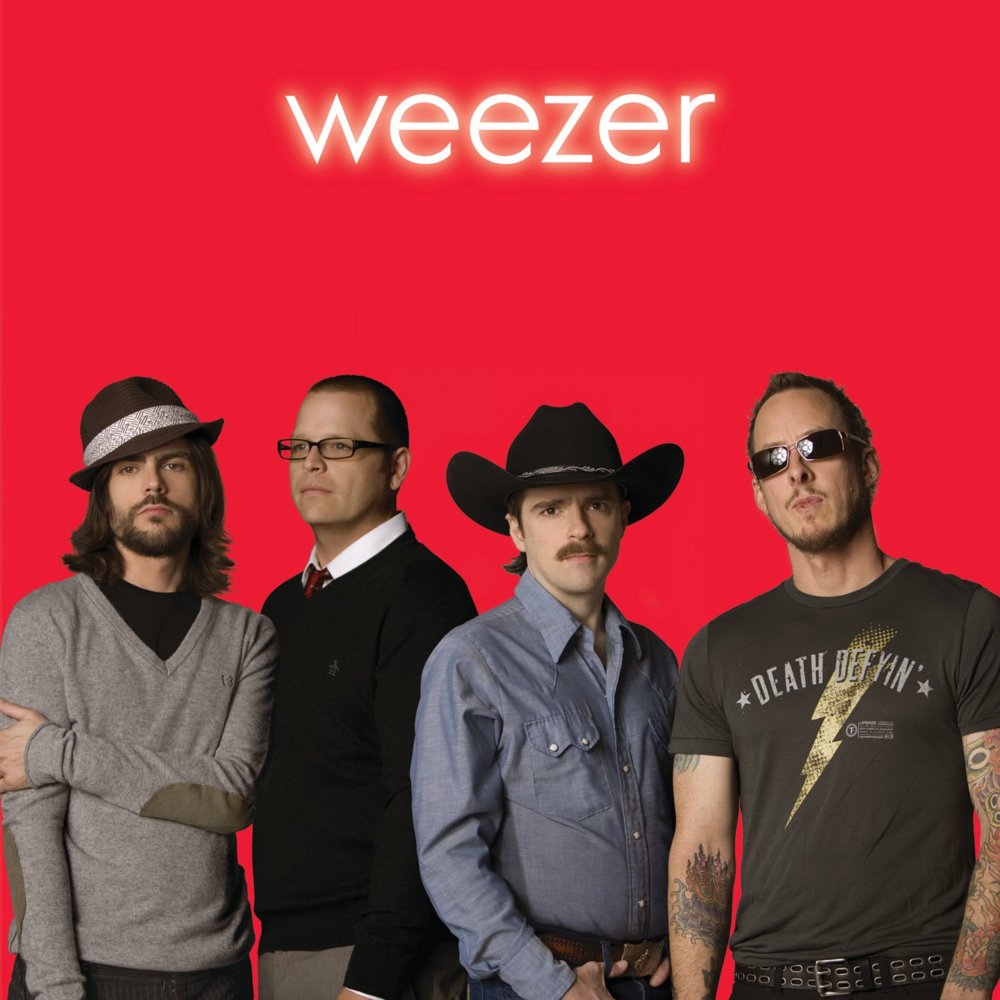
9. "The Red Album" (2008)
Dungeons & Dragons be damned, "nerd rock" always seemed like a misnomer for what Weezer was doing with their debut, but it became increasingly inapt as the years went on and Cuomo seemingly tried to fit himself into as many different characters as possible and out of his thick-rimmed frames. For the cover of the Red Album he settled on a cowboy hat while rocking an inadvisable mustache, but musically, he attempted a mish-mash of songwriting experiments that almost all fell flat, ultimately underscoring the band's inherent limitations. Particularly on the songs where the non-Cuomo members take lead, Weezer stumble below vapid camp -- they sound like the least essential incarnations of over a dozen musical styles.
Brian Bell's ugly break-up strummer "Thought I Knew," for example, plays like a half-baked Third Eye Blind demo with placeholder drum programming, and the grating "Cold Dark World" doubles down on its disturbing stalker-talk by pairing it with Scott Shriner's insufferable howl. At least Patrick Wilson's "Automatic," as dry as it drags along, is adequately listenable, which is more than you can say for Cuomo's back-to-back snoozers: the mushy, claustrophobically referential "Heart Songs" and the hokey, "boo-yah"-dropping "Everybody Get Dangerous." The only times the band sounds remotely like themselves is on the album's two official singles, though each offer conflicting visions of Weezer's schtick. The otherwise reliably chugging "Troublemaker" suffers from Cuomo's unconvincing take on aggressive bravado, whereby the thematically similar "Pork And Beans" succeeds on the strength of its self-deprecating sincerity and for being an anti-establishment anthem written in service of a major label, as well as for its very-of-the-moment music video.
Oddly enough, the band sandwiches between the two their most fully realized take on the self-empowerment anthem -- and one of their all-time greatest compositions -- that completely invalidates either's need for existence. "The Greatest Man That Ever Lived" is a completely unexpected, full-blown rhapsody interpolating the likes of Nirvana, Jeff Buckley, and Beethoven, among others, before finally settling back on that familiar Weezer crunch. It's the only time the band sounds good imitating other musicians, an ambition they resoundingly fail on across the rest of "The Red Album," which amounts to a lot of pastiche without any purpose.
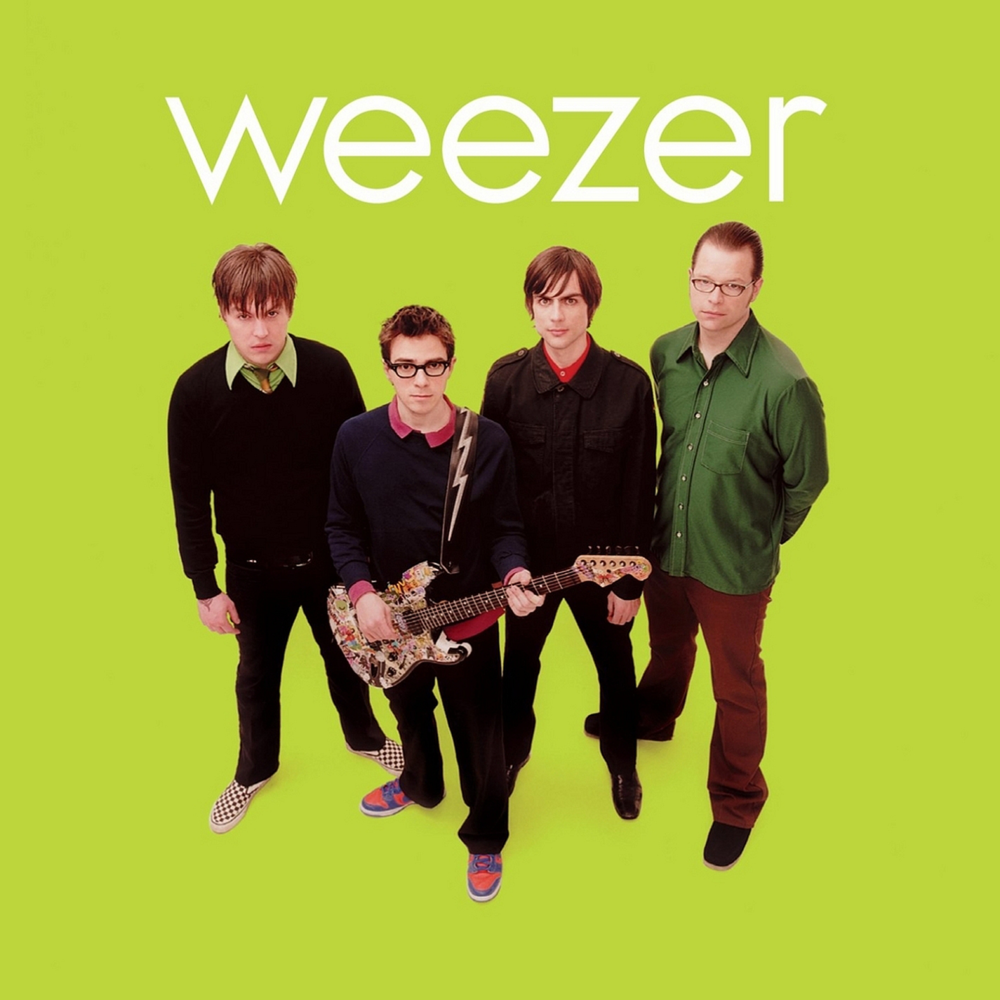
8. "The Green Album" (2001)
Five years after Pinkerton, and as that album was officially cementing its resurrected legacy in spite of its initial knockdown, Weezer came back ready to give us everything we said we wanted that we no longer demanded of them. Eventual appreciation for Pinkerton may have been what brought Weezer back at the turn of the century, but you can't blame Cuomo for refusing to make the same mistake twice. The encyclopedia entry for "be careful what you wish for" may as well be the story of "The Green Album," which restored the visual and color schema the band made their name on, as well as the harmonically dense sonics and melodic precision, but lacked the heart of both the predecessor it attempted to erase and the one it sought to take the reigns from.
If you weren't convinced at first glance, the liner notes made extremely clear Weezer's intentions, quoting Italian opera composer Giuseppe Verdi, "Torniamo all'antico e sarà un progresso," meaning: "Let us return to old times and that will be progress." Yet despite copying everything from their debut down to re-recruiting the Cars' Ric Ocasek to produce, Weezer fell victim to an extreme over-correcting process that ultimately sanded down what made "The Blue Album" spark. Beyond containing almost zero lyrical insight, with Cuomo rarely expressing a sentiment with even the slightest emotional pull, "The Green Album"'s instrumentation is entirely functional and nothing more. It's 28 minutes of not a single flourish or innovative idea; just focus group-tested, inoffensive power pop.
Although heavily processed and factory-sealed, there's no denying the surface-level pleasures "The Green Album" offers. "Don't Let Go" and "Crab" are both effortless to move to without paying attention, meanwhile "Island In The Sun" makes great photo-montage music to reminisce over. The guitar riffs are easy and fun to play along to when you're first starting out on the instrument, and every tone and effect proves aurally confectious. Plus "Hash Pipe" will always kick ass. But as a whole, "The Green Album" comes and goes without registering -- a half hour you won't regret but probably won't really remember either. The real tragedy of "The Green Album" isn't about the music itself, but the reception -- as lifeless as the LP ultimately aged, it was initially greeted with enthusiastic praise from critics, giving Cuomo all the confirmation he needed to pin the final nail in Pinkerton's coffin.
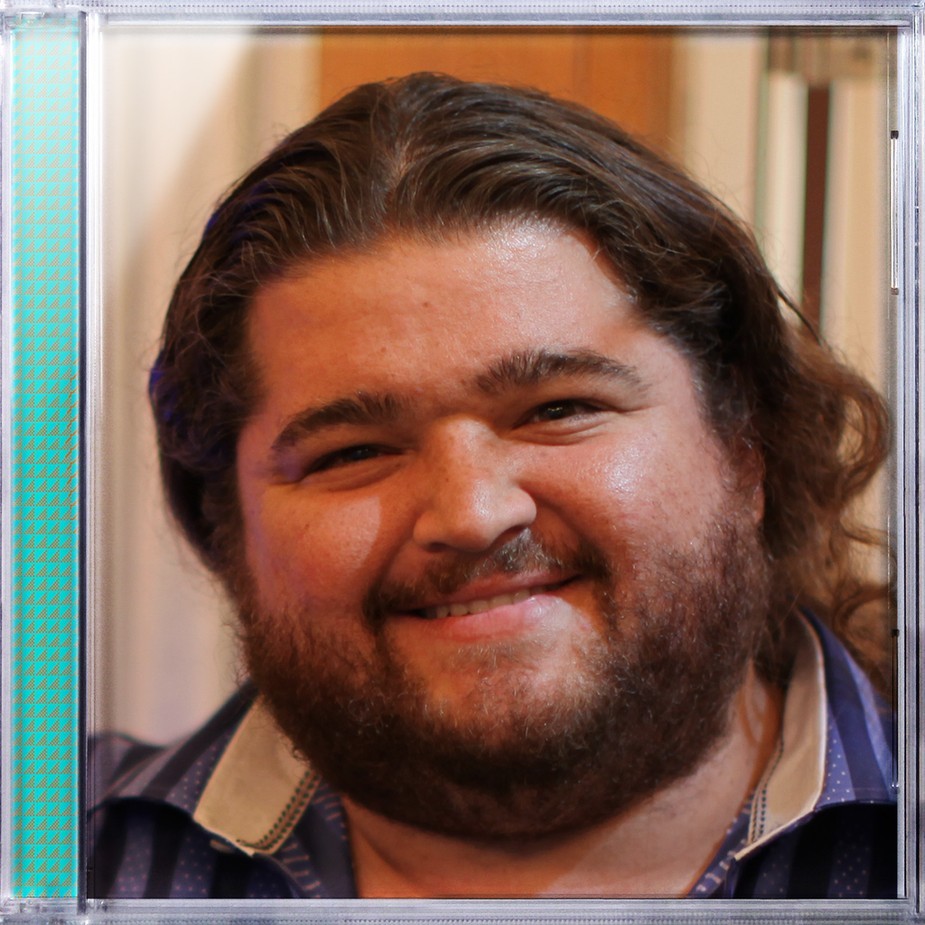
7. Hurley (2010)
Hurley was Weezer's first go on an independent label, and their inaugural release outside Geffen. Granted, Weezer have been a commercial rock band since their inception, so the shift to Epitaph didn't skim off any of the hooky immediacy this band has built their discography adhering to. Weezer are professionals, and they can write a jock-pop jam in their sleep -- which on a majority of their albums from this century it felt like they were. The most immediately pleasing shift then on the band's eighth studio album is the squawking aggression Cuomo brings to the mix. His delivery is atypically vibrant and intent, such as when he shouts longingly for the days "back when Audioslave was still Rage" ("Memories"), or how his "ocular nerve went pop-zoom" upon the sight of a lunchroom crush ("Ruling Me"). He sounds engaged, even when the bulk of his lyricism is still alternating between unrefined platitudes and non-sequiturs.
Beyond the additional vocal grit, Hurley marks a resurged indulgence of Cuomo's glam metal inclinations. Guitars are thicker, glossier, and more colorful, and the band's patented power-chord crunch shines boldly where on previous albums it simply faded to monotony. The scale also feels considerably more substantial; Hurley is packed with bombastic choruses and epic instrumentation, as though the band was trying to ride the megaphone pop-punk wave left behind by Green Day's American Idiot half a decade too late. "Trainwrecks" is an arena-ready anthem inciting aspirations to "cut our critics down to size," meanwhile the mostly acoustic "Unspoken" begins gentle and fluttering, before growing into a gargantuan rocker.
The only total misstep on the album is the atrocious, ill-conceived "Where's My Sex?" Beyond the concept simply deflating almost immediately, the song's belching distortion and monster-truck rally energy are entirely unappealing. But there are quite a few snoozers that don't offend so blatantly while still completely underwhelm. "Brave New World" doesn't rise to the occasion of its subject matter, instead plodding along on banal sentiments for far longer than it should, and "Time Flies" sounds like it was recorded in a trashcan during a rainstorm, but even the unsightly audio quality can't distract from the totally unremarkable schoolyard-jingle that the band somehow deemed worthy of an album-closer. But the net balance is positive, breaking a stubborn downward spiral that the band had seemed permanently caught within. Hurley's far from a great album, but it's the most fun Weezer had sounded up to that point, making it an absolute joy to get caught in the mood with.
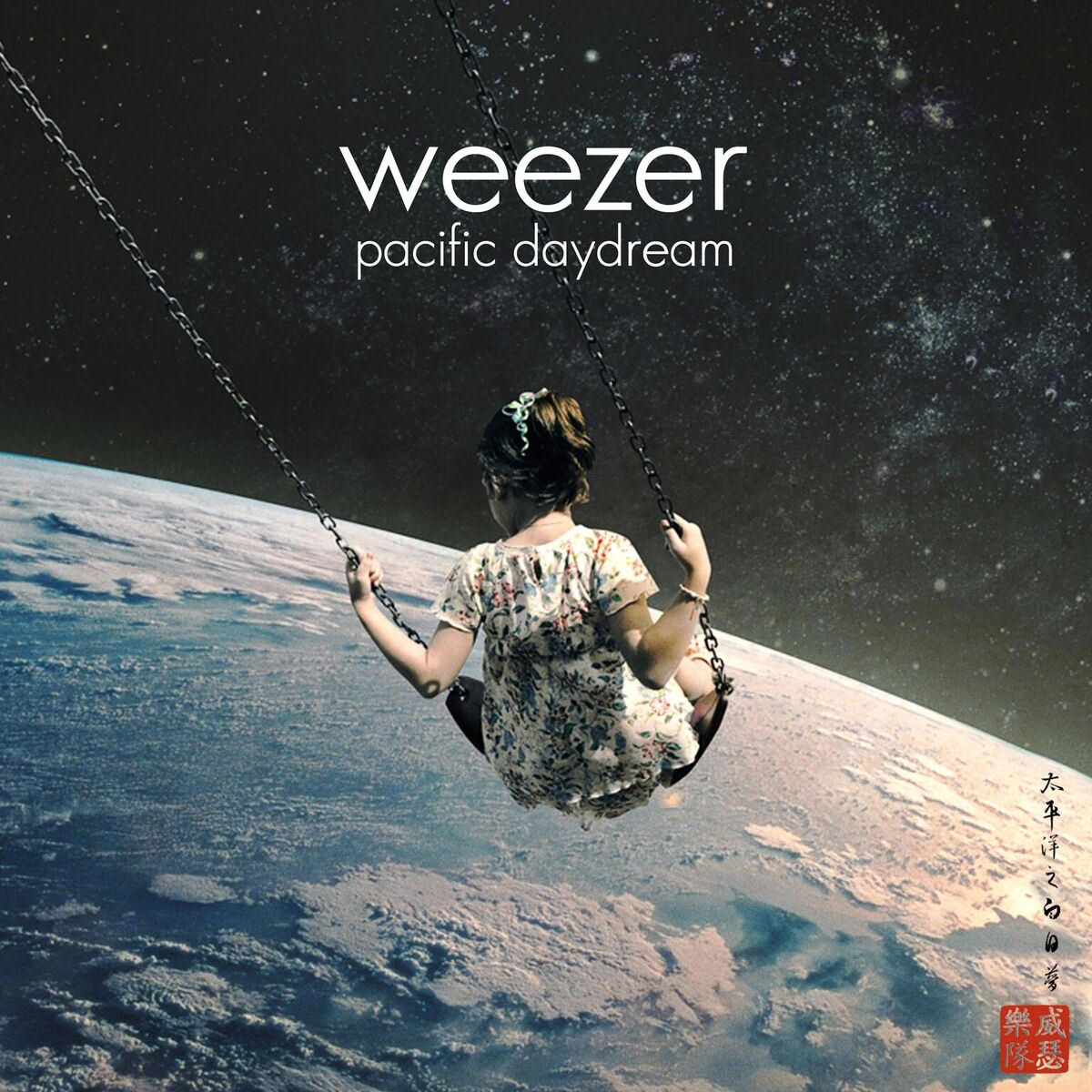
6. Pacific Daydream (2017)
Deliriously catchy, clunkily quirky, and inadvisably genuine -- Pacific Daydream holds the same hallmarks that have defined Weezer throughout their career. The album opens with a wordy stomp-rocker full of overt-innuendo, crests during an overwrought serenade, and ends on a campfire sing-along spouting life lessons. It is, well, a lot to buy into. But like the two albums that came before it, this collection of California-minded beach-pop succeeds in spite of its laughable irreverence -- proving a vital, engrossing listen by committing so fully to its conceit and keeping it unwaveringly communal. These 10 tracks are equal parts radiant and rowdy, leaning on Cuomo's irrefutable songwriting chops while dressing them in Weezer's most noise-making bells and whistles.
Of course, there are moments of questionable taste -- "Feels Like Summer" bites heavily from Maroon 5's gloss-pop, "Mexican Fender" dampens the wild abandon of the Van Halen songs it tries to emulate -- that feel just a bit too much like blatant radio bait. And for what it's worth, they worked: "Feels Like Summer" hit #1 on alternative radio and is the band's most successful single since "Pork And Beans." Good for Weezer, and fine for us too, because once "Feels Like Summer" is out of the way the rest of Pacific Daydream channels far more interesting wells. "Happy Hour" is a wistful life-on-repeat highlight that borrows just the right amount from tropical house for its chorus accents. "Beach Boys" is lyrically soupy, but musically lean and loud in a buoyant display of both tribute and showmanship. "La Mancha Screwjob" feels like summer far more than "Feels Like Summer," and would make for a much better radio single without making as much of a fuss about it.
The band throw out a wide array of stylistic flourishes from song to song, finding equal space for a snappy jukebox jam ("Weekend Woman") as they do a drifting, moonlit requiem ("Sweet Mary"), in a way that reflects the most colorful headspace of Cuomo's career. Largely built on old accumulated song fragments catalogued meticulously on Google Sheets and helmed by Raditude-producer Butch Walker, Pacific Daydream should have been an unfocused, bombastic mess. Often times, it is. But against the odds, they stick the landing -- Weezer in 2017 have just figured out how to make their unfocused, bombastic music compulsively listenable.
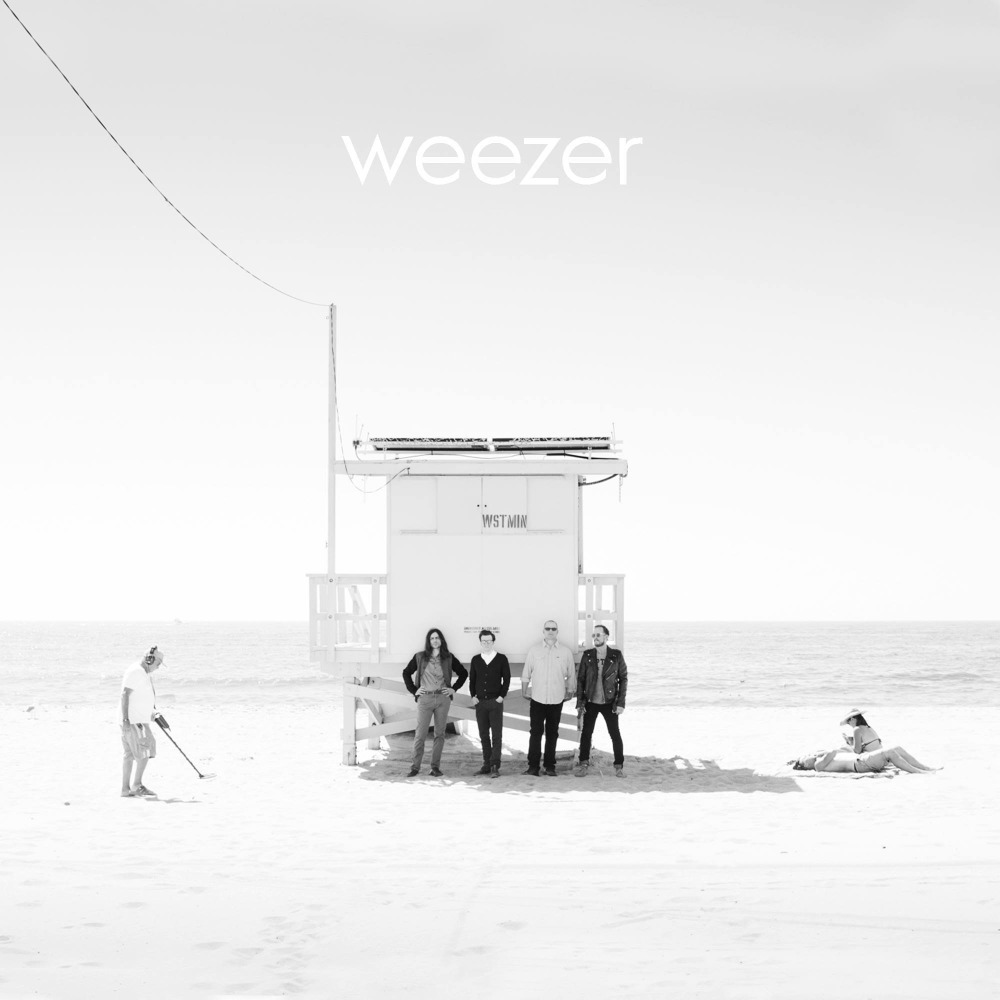
5. "The White Album" (2016)
Following their long-awaited critical comeback Everything Will Be Alright In The End, "The White Album" initially seemed like it was trying to undo all that hard-fought goodwill within the blink of an eye. First and foremost, aping the naming scheme of one of the 1960s' most beloved cultural artifacts set the minimum requirement for the album far above any scale Weezer's capable of clearing. But Weezer plainly weren't even interested in trying, choosing the shamelessly gaudy "Thank God For Girls" as its lead single. So soon after finally returning to our good graces, Weezer were daring you to keep up the praise, taking creative risks with their tongues in their cheeks and a knowing wink.
Now, I personally find "Thank God For Girls" a capital-J Jam, in part because it so ridiculously-yet-convincingly critiques masculine insecurity through warped gender roles, but also because it's a massively giddy blast of arena rock nonsense. Yet it proved blatant misdirection for what "The White Album" wound up being, which is a breezy, California summer-inspired medley of consciously carefree pop songs. It's the Weezer album most directly inspired by band's heroes the Beach Boys, comprised predominantly of running-into-the-sunset minded barroom sing-alongs ("L.A. Girlz," "Wind In Our Sail," "(Girl We Got A) Good Thing,") and wistfully nostalgic seaside rockers ("Summer Elaine And Drunk Dori," "Endless Bummer," "Do You Wanna Get High?"). Every song is delightfully peppy, yet expectedly excessive with regards to Cuomo's sense of drama, balancing the two moods seamlessly, especially on the thundering album-highlight "Jacked Up."
Despite Cuomo developing song ideas by using Tinder as "research," "The White Album" is probably Weezer's least grotesque collection of romantic material yet. Instead of faux-machismo, he sings earnestly of nurturing tender puppy love and reimagining partnerships gone astray, coming off worn but warm. The only attribute that doesn't go down easy is the way Cuomo's stuffs his lyrics with oblique allusions, which on "The White Album" include everything from intro-biology mainstays Charles Darwin and Gregor Mendel to literary figures Lewis Carroll and Dante all the way to Greek mythology, African deserts, and an absolutely out-of-nowhere shout-out to OK Computer. Yet even those quirks can often prove charming under the right light, and "The White Album"'s so pleasantly spirited that it convinces you to love it on its own terms, a trick Weezer hadn't been able to pull off for more than a decade.
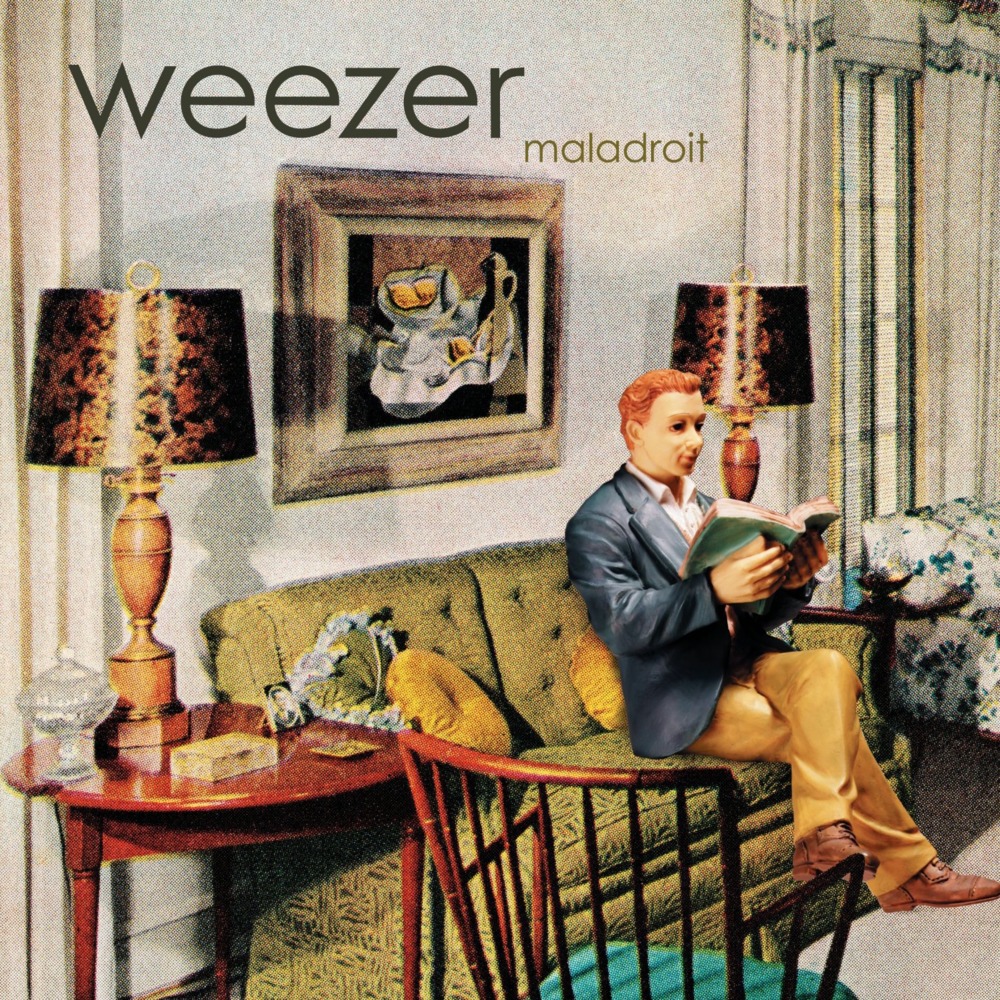
4. Maladroit (2002)
Weezer were one of the most prominent big-name bands to embrace the Internet in the latter years of the '90s and early ones of the '00s, partially because the Internet was so quick to embrace Weezer. Online fan forums were instrumental in redefining Pinkerton's legacy to the extent that it would complete its slow-burn, word-of-mouth comeback, and Weezer paid considerate respect to those fan clubs and their founders in turn and often over the years. For Maladroit, the band crossed camps completely to establish a direct line to their fanbase: releasing mp3 demos on their website daily while working in the studio, hosting a submission contest to decide on the album cover, and taking the title from a suggestion on the Weezer message boards. Accordingly, Weezer fans received a direct and special thank you in the album's liner notes.
Ironically, Maladroit feels like the album the band's followers agree the least on. To some it's a forgettable slog of B-side quality singles, and to others it contains many of their all-time strongest tunes. I lean toward on the latter impression, finding the album's 34 freewheeling minutes to be willfully obtuse (by Weezer standards) in a musically arresting way. "American Gigolo" is a chugging, erratic album opener, and it leads directly into the huge vocal call-and-response "Dope Nose." Later the delightful, zippy "Keep Fishin" is set adjacent to the glam-metal slasher "Take Control," before tumbling into the blissfully brash ballad "Death And Destruction." Maladroit was a loose, volatile left turn from where the pop-minded "Green Album" had signaled the band was heading, but also proved a one-off red herring when the band ultimately followed that initially promised path as expected.
As such, it's probably the most fascinating record the band ever made -- as well as the one that rewards the most repeat listens. The album calls back to Pinkerton's mellifluous walls of distortion on a number of tracks, such as "Space Rock" and "December," and with Cuomo's sweet and scratchy delivery Maladroit echoes a lot of that record's tonal qualities and vocal approach. But it's also a more dynamic listen, with the band sounding as good doing ramping, angry rockers ("Slob") as they do reckless pop-punk ("Possibilities"). And with fluttering synchronous guitars and sparse, expressive lyrics, "Burndt Jamb" still maintains the title of the best Weezer song released since the '90s.

3. Everything Will Be Alright In The End (2014)
Everything Will Be Alright In The End is Weezer's most self-aware album, and marks a conscious effort by Cuomo to wrestle with long-strained relationships, both those with the band's fans and his own personal ones. The album is lyrically divided into three sections: "Belladona," "The Panopticon Artist," and "Patriarchia," which concentrate on Cuomo's identities as a romantic partner, famous musician, and son, respectively. But musically, each song channels the same influences, those being huge, Queen-esque flourishes, surf-rock tempos, and yearning power-pop. None of that was out of ordinary for the band, yet EWBAITE marked a new career highpoint -- one that, while not rivalving either of Weezer's '90s classics, stood apart from comparison to any of their previous 2000s missteps.
The album renewed the spirit of Weezer, and gave an indisputable reason for them to continue to exist. It wasn't simply a break from egregious failures a la Hurley; it was a definitive success, filled with urgent, charming, melodically gripping tunes. "Lonely Girl" blows every cookie-cutter pop-rocker in Weezer's 21st century catalogue out of the water, and essentially invalidates the need to ever revisit a majority of the Green Album. "Cleopatra" pulls off a number of novel tricks without upsetting Weezer's comfort zone, sounding refreshingly familiar while subtly pushing the boundaries. "The British Are Coming" is eccentrically dazzling -- a watery-eyed history allegory that miraculously avoids its seemingly inevitable fate as a one-punch joke. It's the most electric track on the album, with cooing melodies, Cuomo's hurdling falsetto, and an awe-inducing fireworks display of a guitar solo.
The album title, sung emphatically and infectiously by a children's choir during "Foolish Father"'s sublime outro, offers a fitting coda to the end of Weezer's long-drawn out redemption story. Yet the band didn't stop there, transcending the already immersive album to the next level with "The Futurescope Trilogy" -- the trio of terraforming instrumental cuts that conclude the album after "Foolish Father"'s more traditional big finish. Those seven and a half minutes are thrillingly acrobatic, literally sounding like the breaking of self-imposed shackles. EWBAITW won back Weezer fans, but did it without compromise. It doesn't sound like "The Blue Album" or Pinkerton, and instead pegged a new sound Weezer fans are going to be wishing all future records embody.
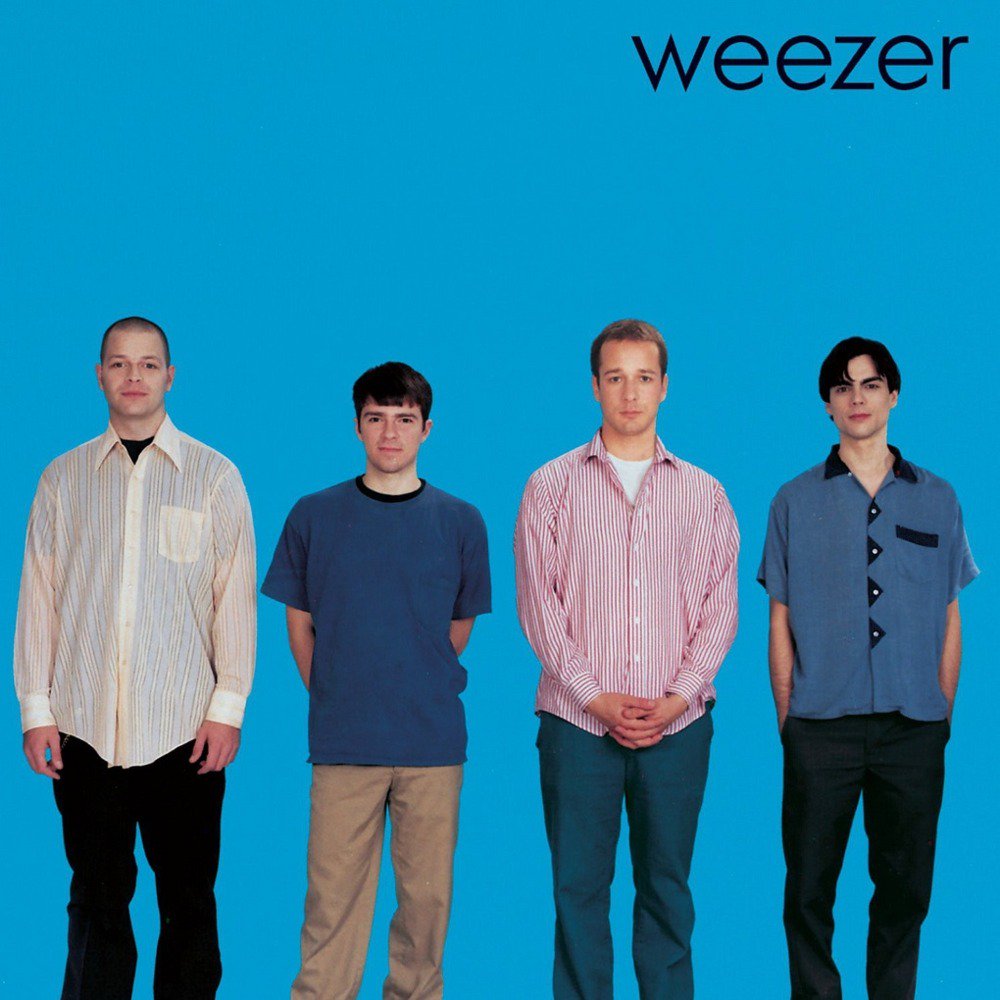
2. "The Blue Album" (1994)
For an album that went platinum in a year, and eventually reached triple platinum status, it's remarkable just how unassuming Weezer's self-titled, color-classified debut seems; as though its success was just some freak accident unintended for a laissez-faire assortment of accumulated songs. But make no mistake, "The Blue Album" was a scrupulously considered project. That plain blue backdrop and those straightfaced mugshots were critical elements of establishing a brand, and were laboriously thought-over to the extent that Matt Sharp even had his head photoshopped in from another picture to fit his liking. Everything about "The Blue Album" may initially read as straight and unfussy -- including the clear, mellifluous garage rock sound Weezer had then perfected despite having only been a band for two years prior -- but it was by no means a casually crafted classic.
The band coordinated every ounce of magic down to the most miniscule of details, from Sharp's heavily practiced backing falsetto to all the dimly lit doo-wop harmonies. Every piece fits purposefully in place: the thin upstroke chords acting like stepping stones for "Say It Ain't So"'s aromatic, unforgettable lead guitar, the waltz between the harmonica and finger-picking at the onset of "In The Garage," the church organ tone that snaps into the buried-beneath-the-earth Brian May tribute that begins "Holiday." And for an album that's full of sing-along, air guitar ready staples, it's a subversively heart-crushing collection. After Pinkerton's high-profile crash and burn, Cuomo would spend the next decade and a half only drawing from the "The Blue Album"'s well, trying to recreate its effervescent sheen on cheerier songs that couldn't possibly suggest he was wrestling anymore with deep turmoil. So "The Blue Album" stands alone as the only time Cuomo sang of unrelenting social alienation, internalized family trauma, and the nerd definitively losing the girl over music that suggested happy endings and personal breakthroughs.
But for all the downerism, "The Blue Album" is also deceptively charming and funny. Cuomo built a whole song on his resemblance to "Buddy Holly," wrote an evergreen anthem for surfers that may or may not have a larger metaphor buried somewhere within it, and shouted-out his "Superman skivvies" on a song about a relationship gradually decaying. In the album's most perfect one-two comedic punch, Cuomo plays a paranoid, ultra-possessive boyfriend on "No One Else," and then follows it with a song entitled "The World Has Turned And Left Me Here" about the resulting heartbreak that rightfully accompanies being a controlling jackass. Those early Weezer songs were almost always tragic, but the drastic discrepancy between Pinkerton and "The Blue Album"'s receptions might boil down to how much the public figured Weezer was in on the joke versus actually living it.
An alternate question when discussing Weezer's mythology than how Songs From The Black Hole would have affected the band's career is what would have happened if we were introduced to "The Blue Album" Weezer after the Pinkerton one. Would it still hold its place as a definitive album of the '90s? Or would it instead be cast aside as much of modern Weezer has as uninspired, rote three-chord pop relative to the more discordant, challenging Pinkerton? From that lens, it's easier to appreciate the rest of Weezer's catalogue for all its shiny, immediate pleasures. But those moments were never quite as shiny, quite as immediate, or quite as immaculate as on "The Blue Album." It'll always hold its place as the definitive masterwork of the form.
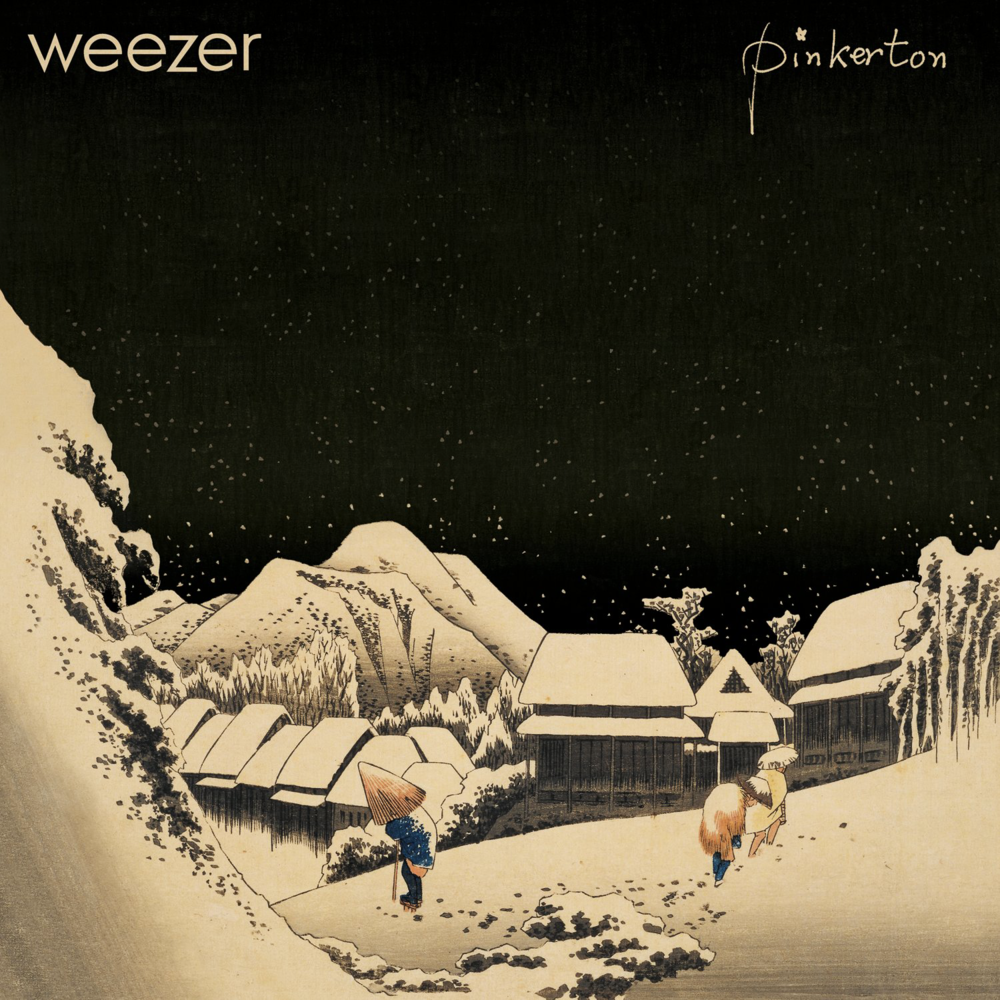
1. Pinkerton (1996)
Voted by Rolling Stone readers the third worst album of 1996, Pinkerton's cultural comeback is nothing short of unprecedented. At first glance, it's not hard to see what initially turned listeners off from a band they'd previously been sold as humorous, Brian Wilson-loving geeks. From its shallow fetishism of Japanese culture and women to its opaque inspiration in an early 20th century opera, Pinkerton's presentation was a far cry from the Blue Album's modest immediacy, as though Cuomo was purposefully trying to bait and switch listeners. Pinkerton was self-produced, and it feels largely self-contained, foregoing the chirpy melodicism and eager-to-please guitar solos with blistering, buzzsaw edges and layers of feedback-stained distortion, encasing the most disaffected, self-destructive songwriting of Cuomo's entire career. It was Weezer's In Utero: the heart-bleeding lashing out following their blue breakthrough.
It's not that Cuomo wasn't vulnerable on "The Blue Album" -- which also dealt heavily with issues of self-doubt and unrequited longing -- but Pinkerton exposed a side of him that was rawer far beyond what anyone had expected. The "nerd" was no longer relatable; rather he was unstable, depraved, and depressed. While the root cause may have been an aversion to fame, the album's most prominent thematic concentration is the sexual frustration Cuomo was babysitting at the time. Pinkerton opens with a song called "Tired Of Sex," and the working album title at one point was simply "Playboy." Across the album's ten tracks, Cuomo sings of maintaining a toxic romance because he doesn't want to be alone, foregoing committed relationships in their entirety to avoid the pain of their finality, and imagines a young Japanese girl masturbating after falling in love with her via fanmail. It's an album wrestling with dark, visceral humanities that listeners just weren't ready to accept from a band they learned to love on the lines: "Woo-ee-ooh, I look just like Buddy Holly/ Oh-oh, and you're Mary Tyler Moore."
Cuomo didn't mince words on how the reception to the album, both the immediate rejection and then subsequent reappraisal, affected him. At one time he called it "a hideous record," "a hugely painful mistake that happened in front of hundreds of thousands of people and continues to happen on a grander and grander scale and just won't go away," and likened the experience to "getting really drunk at a party and spilling your guts in front of everyone and feeling incredibly great and cathartic about it, and then waking up the next morning and realizing what a complete fool you made of yourself." But while Cuomo was never going to come out of releasing songs as blatantly problematic as "Getchoo" completely unscathed, once they were in the world they became important as reflections of flaws that are widely felt but rarely admitted. But instead of being thoughtfully considered, Cuomo became a scapegoat for addressing his issues too directly. Pinkerton's story is not one exclusively defined by Cuomo's demons, but also the ones of a society quick to chastise for being ugly what it secretly sees in itself.
The ultimate influence Pinkerton had on a generation of emotionally transparent bands, such as Jimmy Eat World, Motion City Soundtrack, and Dashboard Confessional (as well as eventually the current class of young rappers), didn't satiate Cuomo over the years, maintaining in 2001 his frustration: "The most painful thing in my life these days is the cult around Pinkerton. It's just a sick album, sick in a diseased sort of way. It's such a source of anxiety because all the fans we have right now have stuck around because of that album. But, honestly, I never want to play those songs again; I never want to hear them again." The rest of us, however, couldn't get enough of the album's tragic, wailing lullabies: of the star-crossed dependency drowned in "No Other One"'s breaking wave of sound, the dirt-kicking daze and confusion of "The Good Life," "Pink Triangle"'s fabricated romance crashing down to an unsympathetic Earth. We'd all not only forgiven him, but went on to interpolate his songwriting DNA into our contemporary musical scene. Alas, the scars of an entire audience rejecting your wounded confessional were too great to look past.
Eventually Cuomo changed his tune, going so far as to perform the now-beloved album in its entirety on tour. He was merely the last holdout. Just six years after placing it in the top three worst albums of its release year, Rolling Stone readers named Pinkerton the 16th best album of all time. Truthfully, Cuomo should have been the one forgiving us, not the other way around. Weezer's entire career following Pinkerton was defined by Pinkerton, but we defined Pinkerton. It's a miracle we have anything that follows at all, and that Cuomo didn't just entirely walk out and lock his songwriting away for good. So what would have happened had Weezer recorded and released Songs From The Black Hole instead? It'd have robbed the world of one of the best albums of its last 20 years, as well as a document that informed a number of subsequent achievements in the genre, but it probably would have led to Cuomo leading a much happier life. To that end, we don't deserve Pinkerton, but we've learned our lesson to never again take it for granted.
